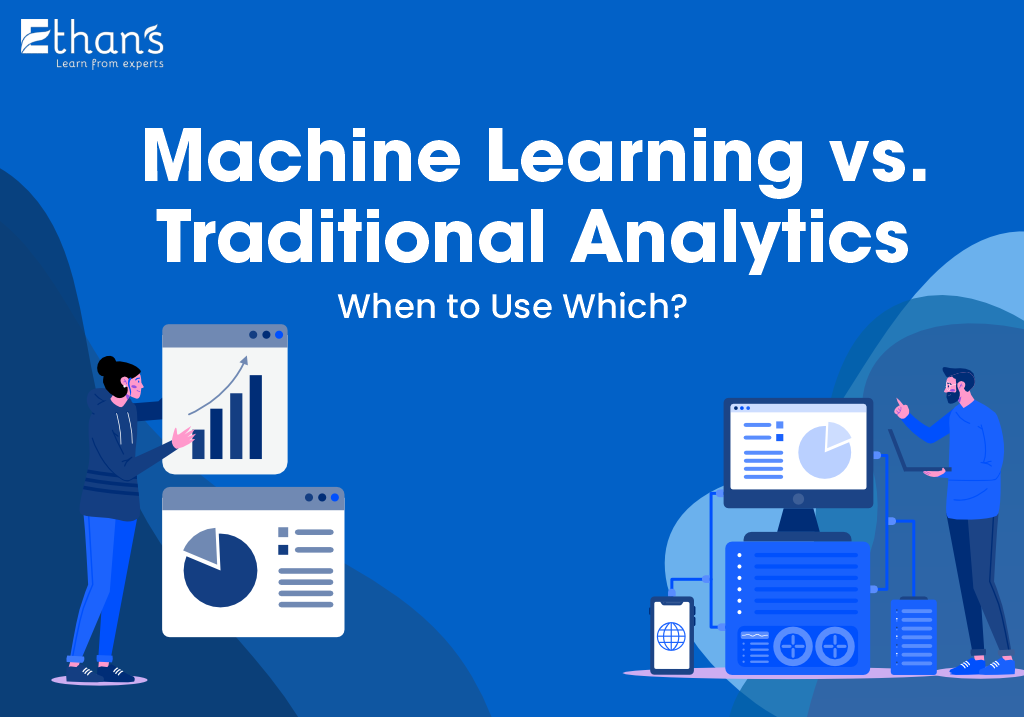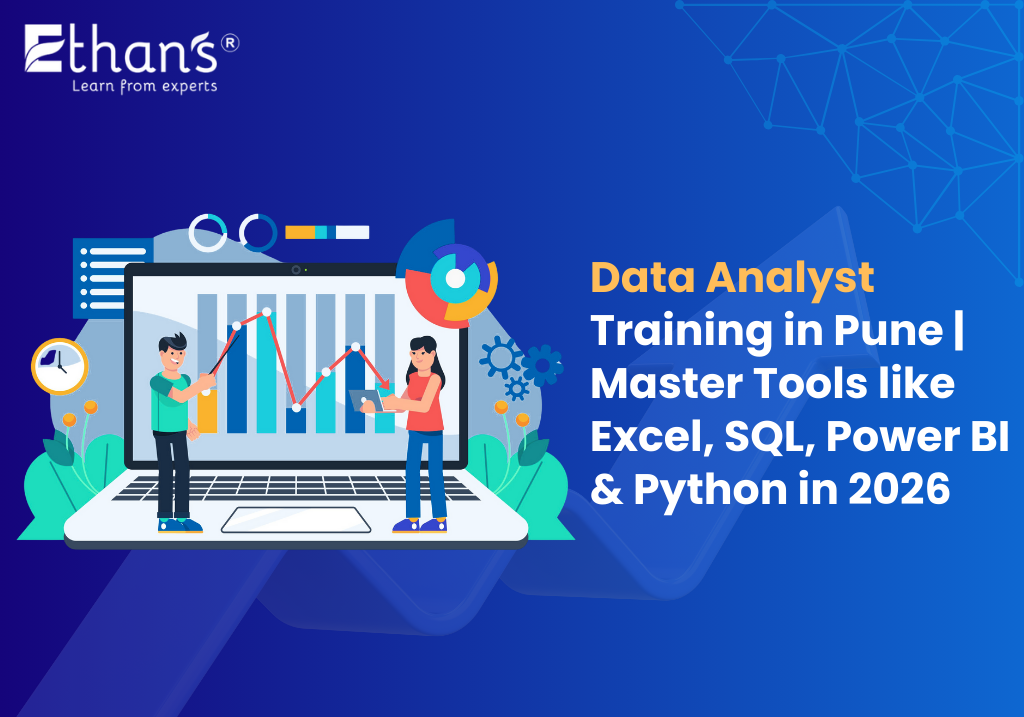As businesses increasingly rely on data-driven strategies, the debate between machine learning (ML) and traditional analytics becomes more critical. Both methodologies offer unique approaches to analyzing data and deriving insights. While traditional analytics emphasizes structured data and predefined models, machine learning excels in handling complexity, making it a preferred choice in modern applications. This article explores the key differences, use cases, and criteria for choosing between the two.
Traditional Analytics: The Foundation of Data Analysis
Traditional analytics refers to statistical methods and tools that rely on structured data and predefined formulas or algorithms. It includes techniques such as descriptive statistics, regression analysis, and hypothesis testing. These methods are often rule-based, meaning the relationships within the data are explicitly defined by analysts or data scientists.
Key Characteristics of Traditional Analytics:
- Rule-Driven: Traditional analytics operates on well-defined rules and equations.
- Human Interpretation: It requires human expertise to design models and interpret results.
- Structured Data: Best suited for tabular, well-organized data.
- Simplicity: Easy to implement and understand.
Use Cases for Traditional Analytics:
- Reporting and Dashboards: Businesses use traditional analytics for generating reports and monitoring performance metrics.
- Forecasting: Basic time-series analysis for predicting sales or demand.
- Compliance: Meeting regulatory requirements often involves straightforward calculations and validations.
- Customer Insights: Segmenting customers based on predefined rules such as age, gender, or location.
Machine Learning: The Power of Automation and Adaptability
Machine learning, a subset of artificial intelligence (AI), is designed to identify patterns and make predictions without explicit programming. By training models on large datasets, ML can uncover insights that are too complex for traditional analytics to detect.
Key Characteristics of Machine Learning:
- Data-Driven: Learns patterns and relationships directly from the data.
- Automation: Reduces human intervention in model creation and optimization.
- Unstructured Data: Capable of processing images, text, and other unstructured formats.
- Scalability: Handles large and dynamic datasets effectively.
Use Cases for Machine Learning:
- Fraud Detection: Identifying anomalies in financial transactions.
- Personalized Recommendation Systems: Recommending products or content tailored to user behavior.
- Predictive Maintenance: Predicting equipment failures in industrial settings.
- Natural Language Processing (NLP): Enabling chatbots, emotion detection, and language translation.
- Healthcare Diagnostics: Assisting in disease detection through image analysis and patient data.
Comparing Machine Learning and Traditional Analytics
|
Criteria |
Traditional Analytics |
Machine Learning |
| Data Type | Structured | Structured and unstructured |
| Human Intervention | High | Minimal |
| Model Flexibility | Static | Adaptive |
| Scalability | Limited | Highly scalable |
| Complexity | Handles simple relationships | Excels at complex patterns and dynamics |
When to Use Traditional Analytics
Traditional analytics remains a powerful tool for specific scenarios. You should consider it when:
- The Problem is Well-Defined: If you know the questions you want to answer and the data relationships are clear, traditional analytics is effective.
- Limited Data: Traditional methods work well with small datasets where statistical assumptions can be met.
- Regulatory Requirements: For compliance and audit purposes, traditional methods provide transparency and ease of interpretation.
- Resource Constraints: Machine learning often requires specialized hardware and expertise, which might not be available.
When to Use Machine Learning
Machine learning shines in scenarios where:
- Large and Complex Datasets: ML thrives on big data, uncovering patterns that humans may miss.
- Dynamic Environments: It adapts to changes in data, making it ideal for applications like stock trading or personalized marketing.
- Unstructured Data: When dealing with images, videos, or textual data, ML offers the most efficient solutions.
- Predictive Accuracy is Critical: For applications like healthcare diagnostics or autonomous vehicles, the ability to make precise predictions is paramount.
- Real-Time Analysis: Machine learning models can process and analyze data in real-time, making them indispensable for time-sensitive decisions.
Integrating Machine Learning and Traditional Analytics
While choosing between machine learning and traditional analytics, it’s important to recognize that these approaches are not mutually exclusive. In fact, they can complement each other. For instance:
- Hybrid Models: Traditional analytics can help preprocess and clean data before feeding it into machine learning models.
- Feature Engineering: Insights from traditional methods can inform the creation of features for ML models.
- Explainability: Traditional techniques can explain the results of complex ML models, improving transparency.
- Incremental Deployment: Businesses can start with traditional methods and gradually adopt machine learning as their data and expertise grow.
Machine Learning Training in Pune: Unlocking Opportunities
The demand for professionals skilled in machine learning is rising globally, and Pune is no exception. Renowned for its educational institutions and tech industry presence, Pune offers numerous opportunities to learn and excel in ML. If you are considering enhancing your career, here’s why Pune is a great choice:
- Diverse Machine Learning Classes in Pune: From beginner to advanced levels, Pune hosts numerous institutions providing hands-on training.
- Comprehensive Machine Learning Course in Pune: These courses often cover Python, TensorFlow, and real-world projects, preparing students for practical applications.
- Specialized Machine Learning Training in Pune: Many programs focus on specific industries like healthcare, finance, and e-commerce, offering tailored insights.
Choosing the Right Approach: Key Takeaways
To decide between machine learning and traditional analytics, consider the following:
- Understand the Problem: Clearly define your goals and constraints.
- Evaluate Data Characteristics: Assess the size, complexity, and structure of your data.
- Consider Resources: Account for the availability of expertise, tools, and computational power.
- Future Scalability: If your needs are likely to grow or change, machine learning provides better adaptability.
Conclusion
Machine learning and traditional analytics are both indispensable tools in the realm of data analysis. While traditional methods are rooted in simplicity and interpretability, machine learning offers unparalleled flexibility and power for complex and dynamic scenarios. By understanding their strengths and limitations, businesses can make informed choices, leveraging the best of both worlds.
For those aspiring to master machine learning, enrolling in a machine learning course in Pune can be a game-changer. With Ethan’s Tech, you’ll receive top-notch training and hands-on experience to become a key player in driving data-driven innovation.





